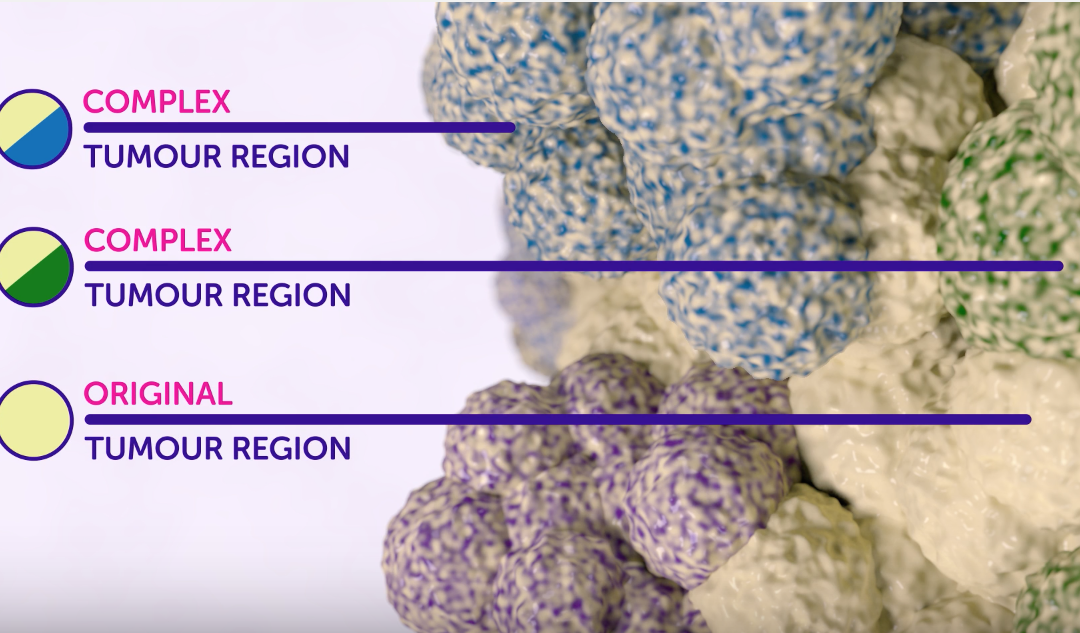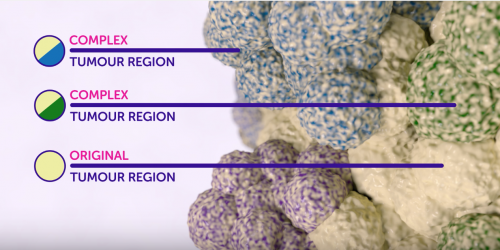Cancer Research UK scientists may have found the precision tool needed to boost immunotherapy treatments and combat the scourge of cancer. The discovery could spur a new generation of personalized, cancer-fighting treatments. The study is published in the journal Science.
Current immunotherapy treatments attempt to harness a patient’s immune system in the fight against cancer, but the disease often puts up a strong defense. Modern treatmentsare “powerful-but-blunt weapons,” with serious possible side effects. Now, however, scientists believe they may have found a way to sharpen those immunotherapy tools and make them more effective.
Part of what makes cancer so difficult to treat is its ability to mutate wildly within a patient’s body. Think of a tumor like a fast-growing tree. As the tumor grows, it evolves many different branches – or mutations – that make it difficult for our immune system to combat. Even if someone chops off a branch, it would not fell all the others. This lack of uniformity complicates our healing strategies and makes cancer tough to overcome.
But could this chaotic growth be used to our advantage? As a team led by Professor Charlie Swanton of the Francis Crick Institute and Dr. Sergio Quezada of University College London previously discovered, it’s possible for early DNA faults within a tumor to be seen later in its development.
“We have been using [a type of software] analysis to predict what sorts of mutations are present across the tumor, so we wondered whether we could also use it to look forantigens shared on all tumor cells,” said Dr. Nicholas McGranahan, a member of Swanton’s team, in a statement. These antigens are the “red flags” needed for the immune system’s T-cells to signal the destruction of damaged cells.
McGranahan added: “We had suspected that the diversity of mutations we see in tumor evolution would be reflected by the antigens present on the cancer cells – but until now we had no proof.”
Now they do. Their team found immune cells inside tumors that can recognize these early shared features. “If these cells can be isolated and artificially multiplied in the lab, they could form a fearsome cancer-fighting force, with the potential to target every cancer cell in the body,” said Cancer Research UK’s video.
The team used data from The Cancer Genome Atlas to look at more than 200 patients with lung cancer in order to predict the quantity of antigens – and more importantly, the proportion of shared antigens – a tumor had.
Those with more shared antigens usually fared better. That’s because the shared antigens attracted immune cells to the tumor, providing cancer cells with a tougher battle. If scientists can exploit those immune cells to do their bidding, it could spur new treatments.
This may make it possible for further research to “exploit the underlying order in the chaos,” added Swanton. “It’s incredibly exciting, and although it’s early days, it offers hope that we might just be able to turn the tide against advanced cancer – something we desperately want for our patients.”
There are, of course, limitations to this exciting discovery. Personalized therapy for patient’s with fast-growing tumors may not always be possible, as it takes time to customize treatments – perhaps more time than the patient has. Not only that, but it could be costly and treatments are likely to be more effective for certain types of cancers than for others, with lung cancer and melanoma looking like the most promising candidates.
Still, researchers are hopeful that this new discovery will lead to human trials within the next few years. For more information, watch the Cancer Research UK’s video below.












